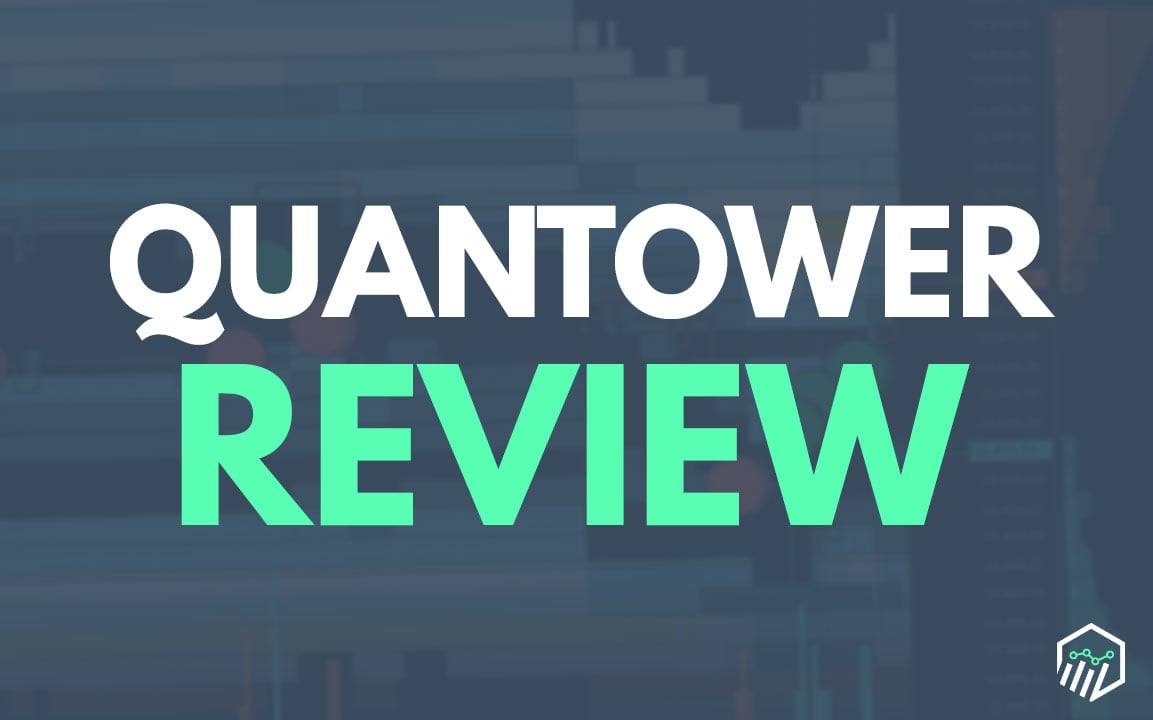What happens when a taxpayer properly invokes their right to challenge the underlying tax liability through the CDP process, but the IRS then uses subsequent overpayments to zero out the disputed balance?
Can the IRS effectively eliminate tax court jurisdiction by manipulating these overpayments mid-process, leaving the taxpayer without any forum to resolve their legitimate dispute?
We previously covered this when the tax court considered the case. The case was appealed, and reversed. Now the U.S. Supreme Court has weighed in. The Court’s Commissioner v. Zuch, 605 U.S. ___ (2025), warrants further consideration of this issue.
Facts & Procedural History
The case involved a married couple who filed untimely 2010 federal tax returns in fall 2012. The wife’s return showed no outstanding obligations, while the husband’s reflected substantial unpaid taxes.
The husband submitted an IRS offer in compromise to resolve his balance. There were $50,000 in estimated tax payments the couple had previously made. The IRS applied these payments to the husband’s account as a married-filing-separate taxpayer, settling his debt.
The wife later amended her 2010 return to report additional income from a retirement distribution. This resulted in an approx. $28,000 in tax liability. However, the spouse maintained that the $50,000 in estimated payments should have been credited to her account, entitling her to a $22,000 refund. The IRS disagreed and threatened to levy her property to collect what it deemed unpaid tax debts.
The taxpayer requested a CDP hearing to contest both the proposed IRS levy and the underlying tax liability allocation. This was her first opportunity to dispute the liability, as no notice of deficiency had been issued since she self-assessed the additional tax on her amended return. The appeals officer rejected her arguments and issued a Notice of Determination sustaining the levy action. The taxpayer appealed to the Tax Court under section 6330(d)(1).
During the multi-year proceedings, the taxpayer filed several annual returns showing overpayments. Each time, rather than issuing refunds, the IRS applied these overpayments against her disputed 2010 liability. Once the balance reached zero, the IRS moved to dismiss the Tax Court case as moot, arguing it lacked jurisdiction without an ongoing levy. The Tax Court agreed and dismissed the case. The Third Circuit reversed, but the Supreme Court granted certiorari to review the Third Circuit decision.
Understanding Collection Due Process Rights
The collection due process hearing represents Congress’s attempt to balance the IRS’s need for efficient collection with taxpayers’ due process rights. Before the IRS can make a levy, Section 6330 requires written notice to the taxpayer and an opportunity for a hearing before an independent appeals officer within the IRS Office of Appeals.
The CDP statute serves dual purposes in the broader landscape of IRS tax collections. First, it provides procedural protections against improper collection actions. The appeals officer must verify that the IRS followed applicable law and procedures before sustaining a proposed levy. Second, it offers a limited exception to the general rule requiring taxpayers to pay disputed taxes first and seek refunds later.
The hearing process allows taxpayers to raise various issues relating to the proposed levy. These include challenges to collection procedures, offers of collection alternatives like IRS installment agreements or currently not collectible status, and appropriate spousal defenses. The appeals officer must consider whether the proposed collection action balances efficient tax collection against the taxpayer’s legitimate concern that collection be no more intrusive than necessary.
When Can Underlying Tax Liability Be Challenged in CDP Proceedings?
The most important aspect of CDP proceedings for many taxpayers involves the ability to challenge the underlying tax liability itself. Under section 6330(c)(2)(B), taxpayers may challenge “the existence or amount of the underlying tax liability for any tax period if the person did not receive any statutory notice of deficiency for such tax liability or did not otherwise have an opportunity to dispute such tax liability.”
This provision recognizes that the normal deficiency procedures don’t cover all situations. Some taxpayers never receive proper notice or opportunity to contest their liability through the usual IRS notice of deficiency process. For these taxpayers, the CDP hearing provides their first meaningful chance to dispute the underlying debt.
The regulations clarify the boundaries of this exception. Taxpayers qualify if they didn’t receive a notice of deficiency in time to petition the tax court, or if they didn’t have a prior opportunity for an appeals conference regarding the liability. However, taxpayers who previously had a chance to dispute the liability through deficiency procedures or prior appeals conferences cannot relitigate those issues in CDP proceedings.
The underlying liability challenge must be properly raised during the CDP hearing to preserve it for Tax Court review. Simply disagreeing with the tax assessment isn’t sufficient. The taxpayer must present a substantive challenge to the existence or amount of the liability, supported by relevant facts and legal arguments.
What Determines Tax Court Jurisdiction in CDP Cases?
The Tax Court system operates as a court of limited jurisdiction, meaning it can only hear cases that Congress specifically authorizes. In CDP cases, jurisdiction flows from section 6330(d)(1), which grants the Tax Court authority to “review” an appeals officer’s “determination.”
The scope of this jurisdiction depends on what issues the appeals officer addressed in the determination. When taxpayers only challenge collection procedures or seek collection alternatives, the tax court’s review is limited to whether the appeals officer abused discretion in sustaining the proposed levy. The court applies a deferential standard, looking for determinations that are arbitrary, capricious, or without sound basis in fact or law.
However, when taxpayers properly raise underlying liability challenges, the tax court’s jurisdiction expands significantly. The court can conduct de novo review of the tax liability itself, making independent findings about the correct amount of tax owed. This represents a major exception to the usual rule requiring pre-payment of disputed taxes.
The determination of jurisdiction can be complicated when multiple issues are raised. Appeals officers must address each issue the taxpayer properly presents, and their determination may include findings on collection procedures, collection alternatives, and underlying liability. The tax court’s jurisdiction extends to reviewing all aspects of the determination that are properly before it.
How Did the Supreme Court Interpret CDP Jurisdiction?
The Supreme Court adopted a narrow interpretation of tax court jurisdiction under section 6330. It did so by focusing heavily on the statutory text and structure.
Justice Barrett’s majority opinion emphasized that the Tax Court’s jurisdiction depends on reviewing an appeals officer’s “determination,” which the Court defined as the binary decision of whether a levy may proceed.
The Court distinguished between the “considerations” that inform an appeals officer’s determination and the “determination” itself. Under this interpretation, disputes about underlying tax liability are merely inputs into the determination, not part of what the tax court can review once the levy is no longer viable. The Court reasoned that section 6330’s focus on levies means that without an ongoing threat of collection action, there’s no relevant determination for the tax court to review.
The majority opinion also emphasized the general rule that taxpayers must pay disputed taxes before seeking judicial review. The Court viewed CDP proceedings as a narrow exception to this pay-first rule, triggered specifically by proposed levy actions. Once the IRS abandons the levy, the exception no longer applies, and taxpayers must pursue traditional refund suits.
The Court expressed additional skepticism about the tax court’s remedial authority under Section 6330(e). The majority suggested that this provision only authorizes injunctions against levies, not broader declaratory relief about tax liability disputes. Without an ongoing levy to enjoin, the tax court lacks meaningful remedial power.
Justice Gorsuch’s Dissent
Justice Gorsuch’s lone dissent highlighted significant problems with the majority’s approach. He argued that Section 6330(d)(1)’s grant of jurisdiction over “such matter” refers back to the appeals officer’s full determination–including resolution of underlying liability challenges properly raised by the taxpayer.
The dissent emphasized that Congress chose the word “determination” rather than “levy” in the jurisdictional provision. As noted in the dissent, this suggests broader review authority than the majority recognized. Gorsuch noted that Congress used “levy” almost 30 times elsewhere in Section 6330 and that this shows that it knew how to limit jurisdiction to levy-related issues if that was the legislative intent.
More importantly, the dissent recognized the practical trap the majority’s rule creates for taxpayers. Those who properly invoke CDP procedures to challenge underlying liability can find themselves without any forum for resolution if the IRS manipulates overpayments to eliminate the basis for collection. This effectively allows the IRS to avoid judicial review of potentially incorrect determinations.
Justice Gorsuch also noted that the majority’s interpretation conflicts with the IRS’s own prior positions. The IRS had previously taken the view that motions to dismiss CDP cases were inappropriate as long as taxpayers still contested the existence or amount of their tax liability, regardless of whether collection was still necessary.
The Procedural Trap for Taxpayers
This decision creates several interconnected problems that trap taxpayers who legitimately attempt to use CDP procedures for their intended purpose.
The most obvious issue involves taxpayers who properly raise underlying liability challenges but find their cases dismissed mid-stream when the IRS eliminates the levy basis through overpayment applications.
This timing problem is compounded by administrative claim requirements for refund suits. Taxpayers must file administrative refund claims within specific time limits –generally within three years of filing the return or two years of paying the tax, whichever is later. Those pursuing CDP proceedings may not realize they need to file protective refund claims until these deadlines have passed.
The case itself illustrates this problem perfectly. The taxpayer could not seek refunds for all the years in question because she missed the administrative claim deadlines while pursuing the CDP process. The IRS’s apparent failure to notify her promptly about the overpayment applications compounded this procedural disadvantage.
The decision also allows the IRS to avoid accountability for determinations that may be incorrect. Appeals officers who reject underlying liability challenges can have their determinations insulated from review simply by the IRS’s strategic use of overpayments. This creates odd incentives for both the appeals process and collection decisions.
This case changes the landscape for appealing IRS collection actions. It signals that CDP proceedings are primarily about levy mechanics rather than substantive tax disputes, even when Congress explicitly authorized underlying liability challenges in appropriate circumstances.
Given this case, taxpayers have to consider whether the IRS might manipulate overpayments to eliminate jurisdiction and develop strategies to preserve their rights to meaningful review. This might include seeking expedited hearings, challenging overpayment applications, or pursuing parallel proceedings in other forums.
The Takeaway
This case provides administrative convenience for the IRS at the expense of taxpayer due process rights. The practical effect creates a procedural trap that undermines Congress’s clear intent to provide meaningful protections for taxpayers facing collection actions. The decision allows the IRS to evade judicial review of potentially incorrect determinations simply by manipulating overpayments to eliminate levy justifications, leaving taxpayers who properly invoke their statutory rights without any meaningful recourse. This outcome is particularly troubling because the CDP statute explicitly contemplates underlying liability challenges in appropriate circumstances. This makes requesting a CDP hearing more challenging than it should be.
Watch Our Free On-Demand Webinar
In 40 minutes, we’ll teach you how to survive an IRS audit.
We’ll explain how the IRS conducts audits and how to manage and close the audit.




























